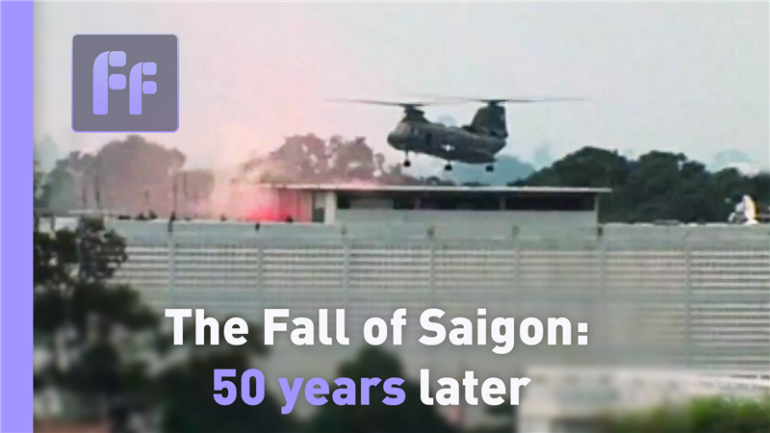Fifty years ago, the capture of Saigon by north Vietnamese forces marked the official end of the Vietnam war, leading to the reunification of Vietnam under a single government. The fall of Saigon on April 30, 1975, marked one of the most significant defeats for the United States during the cold war, leading to a reassessment of American foreign policy and military interventions.
Brian Becker is a party leader for Socialism and Liberation and has been a central organizer of many mass anti-war demonstrations that have taken place in Washington, D.C. over the past years. From a young age, Becker attended civil rights meetings and rallies with his parents. He recalls that later, during his teenage years, he was “paying a lot of attention to politics and to U.S. foreign policy.” By the age of 16, he had become an anti-war organizer. The first time he was arrested was when he was protesting the war in Vietnam on New Year’s Eve.
During the Vietnam War, the United States used Agent Orange, a powerful herbicide, as part of its defoliation campaign to destroy dense jungle cover that provided concealment for north Vietnamese forces. The chemical caused devastating long-term effects, including cancer, birth defects, and neurological disorders. Meet the survivors and the organizations trying to help the victims today.
With a deep curiosity for Asian countries, Laurie was offered to be a reporter in Vietnam at a really early age. “Looking back upon it, the best decision I made was to go and see what this war was all about, but most importantly, what the people were all about.” Laurie witnessed the Fall of Saigon firsthand as one of the only journalists to stay back after all westerners had been evacuated. Laurie recalls, “The North Vietnamese cut all communications within an hour of taking over Saigon. So, I had my last dispatch out, which said, they’re taking over the city.”
 CGTN America
CGTN America
